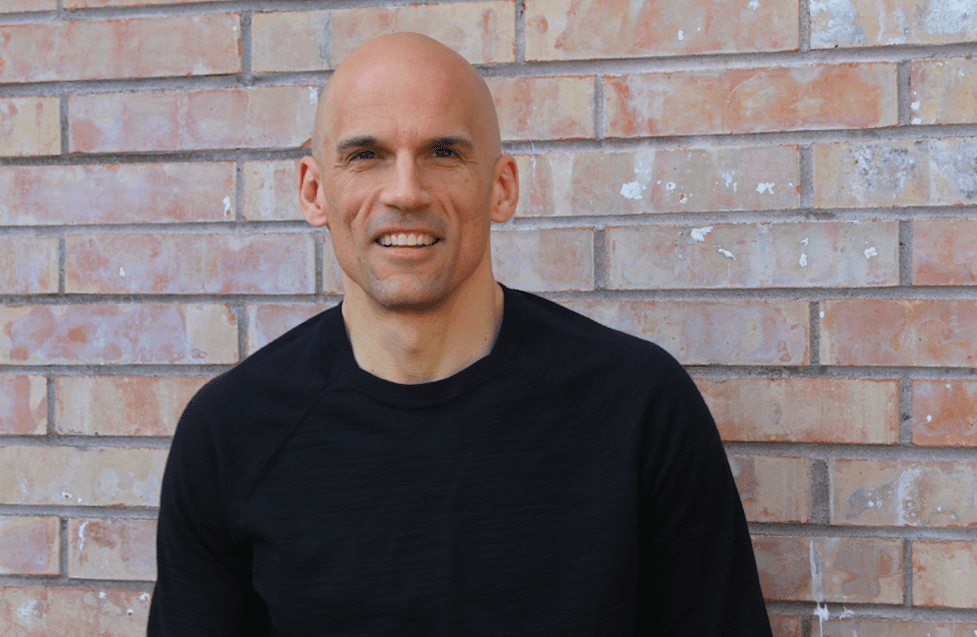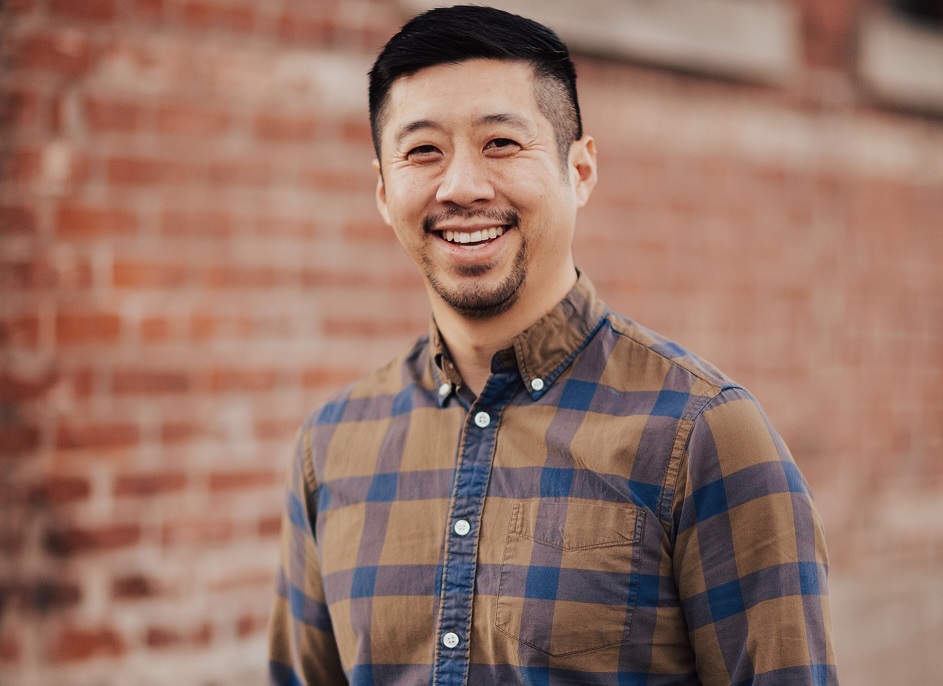Steve Moore serves as Executive Director of the
Murdock Trust in the Pacific Northwest. The Murdock Trust's mission is to serve individuals, families, and communities through grants and e
nrichment programs to strengthen the educational, cultural, social and spiritual life in creative and sustainable ways. Currently, they have one billion dollars in assets and have given away approximately one billion dollars!
Hear Steve share about his journey from academia to the world of foundations and learn the questions he asks organizations before providing funding. And while you're in the funding mindset, don't miss
these tips on grant writing.
Listen now or read the show notes below.
What is the Murdock Trust?
It all began when Jack Murdock, founder of Tektronix Inc., created a trust from his estate. His will stated that
the Trust will nurture and enrich the educational, cultural, social and spiritual life of individuals, families and communities. That is our mission. Jack passed away early on in the 1970's and in 1975 the Murdock Trust began. We have mostly focused on the serving the Pacific Northwest, but have also helped organizations around the country. One of the unique things about the Murdock Trust is that we support faith-based and non-faith-based groups. I like this distinctive about what we do.
How did you get to where you are now?
I never planned to be doing this. I come from an academia background. However, four streams of my life came together and led me here. The first was a passion for raising up and forming leaders. Second, was a desire to understand how faith best engages with culture in a way that is transformative and redemptive
. Third, was a belief that ideas matter because ideas have consequences--whether good or bad. The fourth stream came from an understanding of the importance of mentoring and development in all of our lives because we all are formed in community.
At the Murdock Trust, all these streams of my life were woven together and this is what we want to see through the foundation. We want to weave the fabric of the culture in a way that is redemptive and serves families and communities. We want to help people better fulfill their mission.
We do this through collaborating with those we fund. At the Murdock Trust we have an interactive foundation where the goal is to help organizations ask the important questions and create space to think through these questions. This helps them to execute their mission in the very best way possible by building their capacity to fulfill their promise that they are making by the mission they claim to have. We do serve them through programs, grants, convening, and partnerships. This occurs before we fund any organizations and all of this up on our website. We have all the questions that we are going to ask on
the site.
How do you coach organizations who seek funding & support?
"My dad used to say anyone who has ever taken a shower has had a great idea, but it's the people that get out of the shower and have a plan and execute it who actually get something done."
1. ASK THE HARD QUESTIONS
In our culture we have oversold passion and transparency and undersold discipleship and hard work. These have to be brought together in order for something to come to life. I often come across people who share a great idea with me and I say, "STOP! You have convinced me of your mission, but now tell me how you plan to pull this off?" Often times they are shocked at that because they expect a check after they share their mission, but this is not how we operate nor how most donors operate.
At Murdock we coach people to ask themselves the next question. The first is: "Who is your team?" You have got to have people around you. Oftentimes leaders are not willing to admit they need some folks around them. The second question is: "What's in your toolbox?" You know what you are good at, but do you have people around you who can help you with what you are not good at?
2. DO YOUR HOMEWORK
Many times I come across people who say to me, "There is no one else doing what I am doing." That usually tells me that they have not done their homework. We have to ask if they have done the research because generally there are other people doing what they want to do. We want to see if they are willing to do their homework and learn from those who have gone before and done this work somewhere else.
3. CONSIDER METRICS & ASSESSMENTS
We also ask leaders how they would be able to tell if their vision and mission are actually fulfilled. Metrics are good, but they are only a small part of assessing whether you effectively accomplished your mission. We want to know the answer to this question: "How is your organization going to engage people?"
How will you assess how your mission will be accomplished through the lives of people?
And then--after all of these other questions--we ask: "How are you going to
sustain your organization financially?" Murdock does not want to continue
sustaining an organization. We want to help build the capacity of the organization so those they are serving want to help fuel their mission into the future.
4. DON'T DO THIS ALONE
Don't forget,
we don't make it alone. We aren't meant to live that way. Throughout my life, a small group has been the most helpful and critical community. Wherever you live, get a small group and keep that small group going because it is about relationships.
Relationships are the currency of God's economy.
For those who are trying to do this kind of work alone, here are two things to do. One, look for the usual collaborations, but don't forget to look for
the unusual collaborations too--those that you might not think you will get along with or that are different than yourself, but you have a commonality that you work towards together. The second is to be in partnership. Have the ability to develop loose partnerships. We don't have to have all the talents. Let's find others outside of our organization and bring people in to help. We have to look for those ways to work together.
Can you tell us stories of specific organizations Murdock has supported?
There is a group in Idaho that provides shoes in international settings. These shoes are able to expand as children grow. This model is taking off, so we are helping them expand their capacity.
We also have helped with an environmental organization in Alaska. There was a dam that blocked a key river for salmon runs that was a key part of a local tribal group. We helped them write a grant to help take down the dam and restore the river and salmon life.
One last example is the organization Alpha which creates spaces for spiritual dialogue around short videos. The Alpha youth videos were out-dated and needed to be updated to better tell their story. We wrote them a grant to create the new youth videos which are now taking off around the globe.
WHy is this work significant to you?
I live in Portland and our office is in Vancouver, Washington. The metro-area is home and we care about where we live and our neighbors. We are always working towards flourishing. We recognize people want to serve their city, they just need a tangible way to do that. About a decade ago,
Palau helped do this through CityServe. It was a way to say our city, "We love you and we want to serve you."
We realized that this is an important way for the church, in the cultural moment we are in,
to be present. It's by working together and doing tangible acts of service, but it is also about interpreting why we do what we do.
An uninterpreted life is a life easily misunderstood. We have to give some interpretation to what we do. We want to be faithful to bless the world that we live in, and we can be open about that conviction.
We stand on the shoulders of those before us. I think of Luis Palau and the way he has loved his city, but there are so many people who are not talked about. There are a number of laypeople who have come together and really wondered how they can engage their city in a way that is winsome and part of the fabric of their community.
One of the most important things I have had to learn and be reminded of is the brokenness, wounds, scars, and imperfections of who we are the very things that God redeems. He uses them in ways we never expect and tend to want to hide, but this is a Kingdom value we often neglect.
God asks that we give as much of ourselves as we understand to as much of Himself that we understand. As we keep practicing this, we grow to understand ourselves better and we grow to understand God better. We realize how critical the small decisions add up to us being good stewards of our pain and successes.


